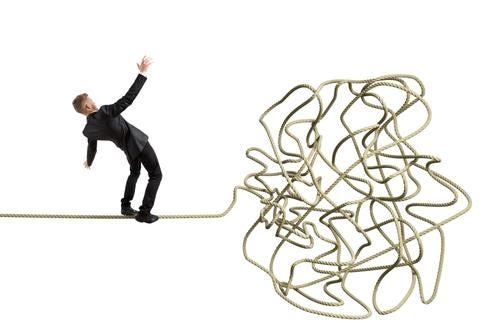Google Tests Buy Button In Mobile Search AdsGoogle Tests Buy Button In Mobile Search Ads
Google isn't alone in its effort to deck the Web with buy buttons. Facebook, Pinterest, and Twitter have been testing buy buttons, too. Social networking is nice, but advertising and revenue are nicer still.


How To Mess Up Your First Days On The Job
How To Mess Up Your First Days On The Job (Click image for larger view and slideshow.)
Google Search, the company's cash cow, has become every advertiser's potential cash register. In addition to other mobile ecommerce enhancements announced on Wednesday, Google said it has begun testing a way to buy products directly from ads displayed on mobile devices.
Google is calling the service Purchases on Google. It works as follows: When a shopper conducts a Google search on a mobile device, some search results may include ads featuring the text, "Buy on Google." Clicking on an ad so labelled will take the shopper to a page bearing the retailer's brand, hosted by Google, with a Checkout button ready to initiate the transaction. One more click on the Place Order button completes the transaction, assuming there are payment credentials associated with the customer's Google Account.
"For retailers, opting in to Purchases on Google means improved mobile conversions thanks to a simplified checkout process," said Jonathan Alferness, VP of product management for Google Shopping, in a blog post. "Participating retailers only pay for clicks on the shopping ads to the product page; all clicks and interactions on the product page are free."
[ What happens when buy buttons go off-line? Read Amazon Buy Button: 1-Click Ordering Minus The Click. ]
Purchases made in this manner are subject to Google purchase protection, but retailers who participate in this service continue to own the customer communication related to the transaction. This allows merchants to invite further engagement with marketing messages. It also may allay fears that Google will come between company and customer.
Alferness says Purchases on Google is still experimental. Staples, eBags, and Under Armour are among the companies participating in the test.
Google isn't alone in its effort to deck the Web with buy buttons. Facebook, Pinterest, and Twitter have been testing buy buttons, too. Social networking is nice, but advertising and revenue are nicer still.
Google is also enhancing the appearance of shopping ads in sponsored mobile search results. These "Shop on Google" ads will soon expand when users swipe to reveal more of the images in the horizontal row. By providing ads that demand mobile screen space and include information such as nearby store locations, Google expects retailers will see more traffic. The company said it will introduce ad expansion in Chrome for Android this month, and in iOS a few months down the road.
When mobile queries seek top-rated products by using terms like "Best women's Nike running shoes" Google intends to present revised shopping ads designed to emphasize rankings and product ratings. Queries that seek "reviews" or "recommendations" will be answered with new product review cards that include ratings and snippets of reviews.
Alferness says Google also has begun showing more local inventory ads, which show when a product is available at a nearby store, because they perform well in response to local intent shopping queries.
Google also recently introduced two new Google Now cards to promote commerce:
The Google Now in-store card, which presents useful information about sales, store hours, and the like when someone using the virtual assistant service is near a store; and
The Google Now price drop card, which as its name suggests notifies Google Now users when a previously browsed product sees a price reduction.
About the Author
You May Also Like






